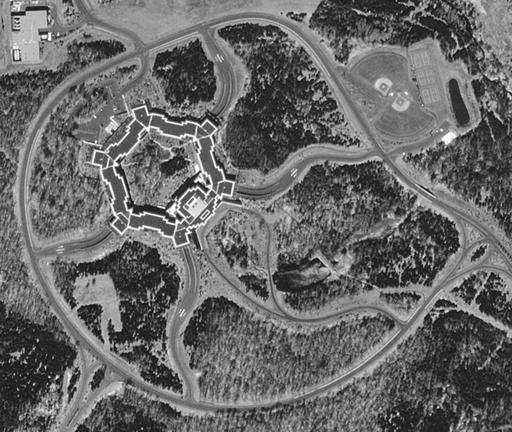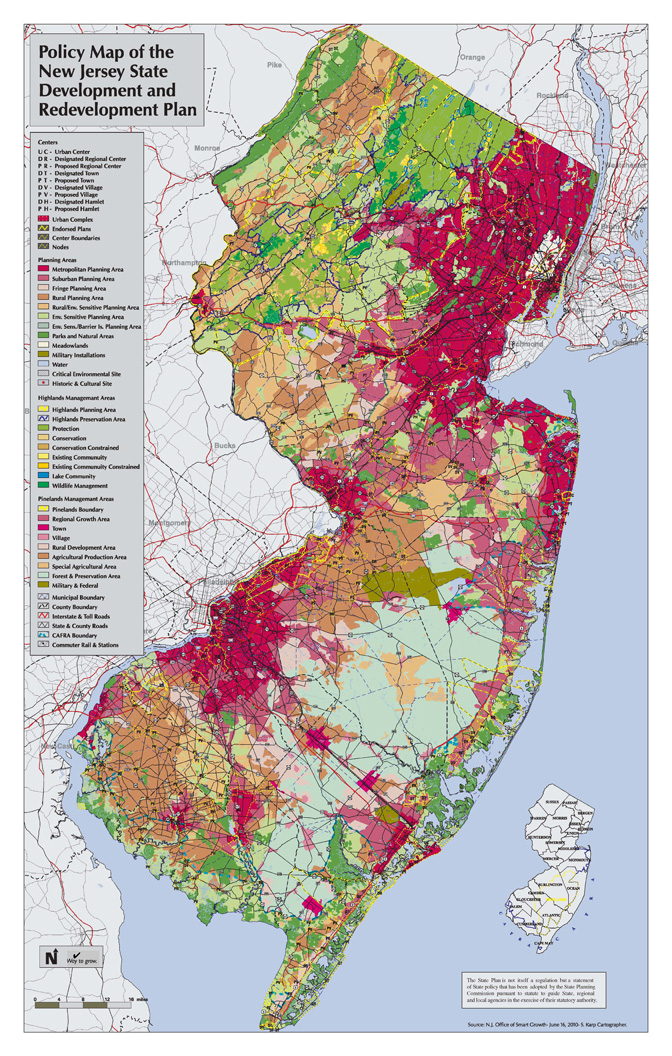New Jersey Future Blog
Seeking Smart Growth Momentum
January 19th, 2004 by Tim Evans
- During the past 4 months, Michigan’s legislature passed 17 smart growth bills, including measures to promote regional planning, redevelopment and mixed-use development.
- Michigan’s progress toward smart growth is the most significant since Maryland passed its land use policy reforms in 1997, creating Priority Funding Areas, Brownfields remediation incentives and the Rural Legacy program.
- New Jersey has historically been a leader in the land use reform, however, the last major piece of planning legislation passed in 1985 (State Planning Act).
LAND USE REFORM IN 2004?
Despite Governor McGreevey’s repeated calls for smart growth, only one bill — Transfer of Development Rights (TDR) — even made it close to passage in the 2002-2003 legislative session. TDR is a relatively modest measure that will be used primarily by a few municipalities where suburban and rural development patterns are colliding. Yet, even this simple step forward needs to gain the necessary coalition of interests — The League of Municipalities, The Farm Bureau, The Homebuilders Association, and environmental and planning advocates.
Failure to pass this measure is the latest in a long series of failed incremental reforms since the passage of the State Planning Act. The reality is that in New Jersey there is strong support for alternatives to sprawl, urban decline and traffic — hallmarks of the status quo. Indeed, key legislative races last fall were fought over smart growth issues. Yet, we have not had any serious attempts at comprehensive reform of the type Michigan has begun.
There are two key differences between Michigan’s success and New Jersey’s stalemate: history and process. First, our now decade-plus-old reforms, and our aggressive purchase of open space have diverted our energies and have allowed us to rest on our laurels. Second, Michigan’s new laws emerged from a comprehensive bi-partisan review of their situation. The legislative breakthrough came as a result of Governor Granholm’s 26-member Michigan Land Use Leadership Council, which enabled a bi-partisan multi-interest consensus to emerge.
We expect a revised TDR bill and other incremental reforms to emerge early in the new legislative session. Land use reform is not about IF in New Jersey, it is only a matter of WHEN and the SCOPE of the effort. If we are to do more than chip away at our problems, consensus on fundamental reforms is likely to take a Michigan-style commission with a broad mandate for restructuring the system.
















